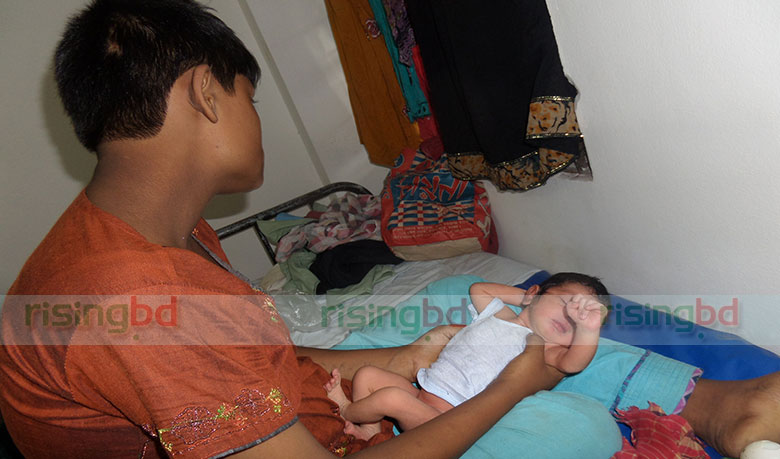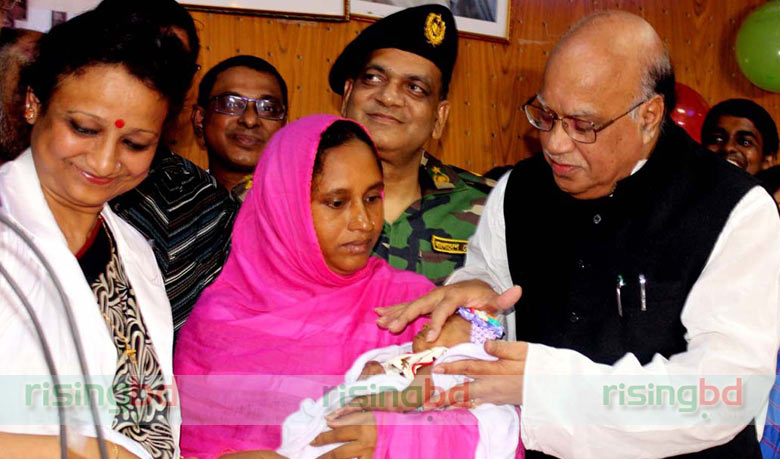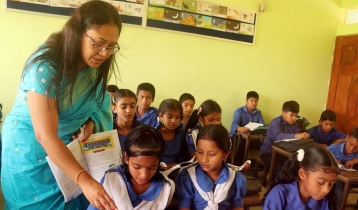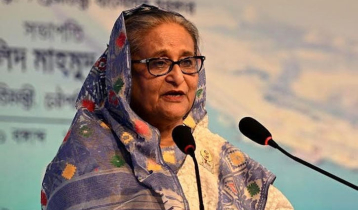Quality education highly needed to stop child labour
Manzurul Alam Mukul || risingbd.com

Aminul Islam: The International Labour Organization (ILO) launched the World Day Against Child Labour in 2002 to focus attention on the global extent of child labour and the action and efforts needed to eliminate this perilous curse which is cautious for the developing countries like Bangladesh.
The day was spurred by ratifications of ILO Convention No. 138 on the minimum age for employment and ILO Convention No. 182 on the worst forms of child labour.
Each year on 12 June, the World Day brings together governments, employers and workers organizations, civil society, as well as millions of people from around the world to highlight the plight of child labourers and what can be done to help them.
Around the world, large numbers of children are engaged in paid or unpaid domestic work in the home of a third party or employer. These children can be particularly vulnerable to exploitation.
Their work is often hidden from the public eye, they may be isolated, and they may be working far away from their family home. Stories of the abuse of children in domestic work are all too common.
The World Day Against Child Labour this year will focus particularly on the importance of quality education as a key step in tackling child labour. This year`s theme is `NO to child labour – YES to quality education`.
The most recent estimates suggest that Sub Saharan Africa has the largest number of child labourers; 59 million children between the ages of 5 and 17 are involved with hazardous work. More than one in 5 children in Africa are employed against their will in stone quarries, farms, and mines.
According to ILO, this persistence of child labour is rooted in poverty and lack of decent work for adults, lack of social protection, and a failure to ensure that all children are attending school through to the legal minimum age for admission to employment.
ILO data revealed that hundreds of millions of girls and boys throughout the world are involved in work that deprives them from receiving adequate education, health, leisure and basic freedoms, violating this way their rights.
Of these children, more than half are exposed to the worst forms of child labour. These worst forms of child labour include work in hazardous environments, slavery, or other forms of forced labour, illicit activities such as drug trafficking and prostitution, as well as involvement in armed conflict.
The World Day Against Child Labour provides an opportunity to gain further support of individual governments and local authorities, as well as that of the ILO social partners, civil society and others, in the campaign to tackle child labour.
The World Day Against Child Labour 2015 calls for:
1. Free, compulsory and quality education for all children at least to the minimum age for admission to employment and action to reach those presently in child labour.
2. New efforts to ensure that national policies on child labour and education are consistent and effective.
3. Policies that ensure access to quality education and investment in the teaching profession.
Child labour is a common scenario in Bangladesh, with 4.7 million or 12.6% of children aged below 14 in the work force. Out of the child labourers engaged in the work force, 83% are employed in rural areas and 17% are employed in urban areas.
Employment ranges from jobs in the formal sector, such as the garment industry, and jobs in the informal sector such as agriculture and domestic service.
In 2006, Bangladesh passed a Labour Law setting the minimum legal age for employment as 14. Nevertheless, the enforcement of such labour laws is virtually impossible in Bangladesh because 93% of child labourers are employed in the informal sector such as small factories and workshops, on the street, in home-based businesses and domestic employment.
Despite the prevalence of child labour in Bangladesh, there has been an increase in legislation against child labour. Bangladesh has ratified both the Minimum Age Convention (C138) of the ILO, and the ILO Worst Forms of Child Labour Convention (C182). In addition, the country also ratified the UN Convention on the Rights of the Child.
Lack of education remains one of the top impacts of child labour. Child labour is a deterrent to schooling. Many policies aimed at eradicating child labour have focused on increasing accessibility to education. Organizations such as the ILO, the United Nations, and UNICEF recognise the importance of education in helping to eradicate poverty and in preventing child labour growth rates.
According to UNICEF, country`s new National Education Policy requires that children must complete school until grade eight and that school must be free. Many definitions of child labour state education as a right of childhood and consider barriers to education as a defining characteristic of child labour.
There is a strong relationship between child labour and school attendance. In a 2010 statistical report, UNICEF measured that around 50% of all working children in Bangladesh do not attend school. Another 6.8% of children between age 7 and 14 whom, while going to school, also work.
Of those that do attend school, school performance is negatively affected when children are in the work force. Although school is free, many children are forced to drop out because they do not have the time or resources to attend. For many families, the income produced by their children is considered more valuable than an education that requires their child to stop working.
It has also been found that illiteracy rates are a predictor of child labour prevalence. In 2013, UNICEF estimates that total adult literacy is around 57.7%. Literacy rates also tend to be lower for females than males. In Bangladesh, less than 75% of girls finish their primary education.
risingbd/June 12, 2015/Aminul
risingbd.com




































